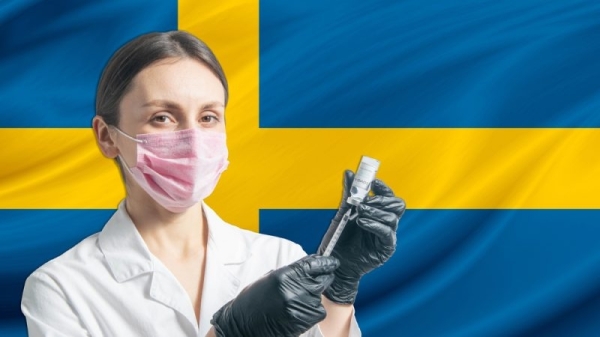Pharma package, Swedish MEPs split ahead of ENVI vote

Swedish Members of the European Parliament welcome updated EU pharmaceutical legislation but remain divided on diverse amendments, including on how to handle incentives for developing new antibiotics, though common ground for the Swedes exists on boosting the fight against antimicrobial resistance.
As the European Parliament’s ENVI committee prepares to vote on the new EU pharmaceutical framework, EURACTIV tested the political spectrum of Swedish MEPs, asking those close to the procedures about their current priorities. ENVI is set to vote on the proposed amendments and draft on 11 March, while a vote in the plenary is scheduled for 1 April.
The proposal before them seeks to amend the EU’s 20-year-old regulatory framework, to improve medicine availability, accessibility, and affordability.
Future-proofing pharma
Emma Weisner. MEP, (Centre Party/ENVI) told EURACTIV: “The overall purpose of the legislation is good – we need a future-proof pharmaceutical legislation that is adapted to current medical developments.”
She said, “Among other things, we are very much in favour of addressing antibiotic resistance by proposing a decoupling between financial reimbursement and the sale of antibiotic preparations. This guarantees resources for further development while removing incentives for additional sales and thus increased use of antibiotics.”
But Weisner also acknowledges the risks, pointing to the potential of the pharmaceutical package to create a “bureaucratic monster” encroaching on Member States’ own competencies. She said she wants to ensure that the proposed framework “does not lead to mandatory and ineffective measures that ultimately neither favour innovation nor the availability of medicines to patients.”
Boost competitiveness and innovation
MEP Johan Nissinen (Sweden Democrats /ITRE) remarked to EURACTIV: “It is said that with this proposal, the Commission wants better medicines for a larger number of diseases and that these should reach more people in all EU countries more quickly. This, at lower prices and without jeopardising the manufacturers’ competitiveness. This sounds good, of course, but we know that all this cannot be easily regulated in practice.”
Nissinen believes the proposal focuses too little on competitiveness and innovation and fears that pharmaceutical companies may move their activities to the US, UK or Asia, adding “that responsibility for healthcare lies with national governments.”
Boost competitiveness and innovation
A key requirement for the Swedish Green Party is that environmental risk assessments are carried out for all medicines. MEP Pär Holmgren (Green Party/ ENVI) told EURACTIV that the risk assessment is “an integral part of the risk-benefit evaluation for market authorisation.” At the same time, the Green Group has tabled more than 500 amendments to the EU pharma package proposal.
The most important, according to Pär Holmgren, is the extension of “the obligation of the industry to report all financial support, to include pre-clinical studies and support for manufacturing capacity. Also, extend this obligation beyond grants to include tax breaks and other benefits given to industry.”
Another requirement is to strengthen the work on antimicrobial resistance in both legislative proposals and ensure that the prevention of drug shortages is prioritised. He would also like to see greater transparency from European and national authorities on clinical trial results regarding the safety, effectiveness and environmental impact.
Countering medicines shortages
“For the Moderates,” MEP Jessica Polfjärd (Moderate Party/ENVI) said: “it is important that we get a proposal that strengthens Europe’s competitiveness and the investments in research and innovation.”
Polfjärd said that this way lawmakers can guarantee the development of medicines and thus ensure that patients have access to the medicines and treatments they need. She remarked: “It is also necessary to counteract the shortage of medicines, which is a growing problem in Sweden and Europe.”
Moreover, she believes the review must be done in a way that doesn’t jeopardise the Swedish pharmaceutical industry. The Moderate Party wants to keep today’s general data protection period as it is, while the Commission proposes a shorter period.
“Companies act on incentives; it is therefore crucial that the policy provides the right conditions to encourage investment in research,” she added.
Adapt to people’s needs
The Left party has not yet taken a position on how they will vote, but MEP Malin Björk considers it important “to have a new pharmaceutical legislation that is adapted to the needs of the public, ensuring access to medicines wherever in the EU patients live.”
“Environmental risk assessment and making medicines more environmentally friendly are important proposals, as well as promoting innovation, research and development. All to promote public health.”
She also considers the proposal too focused on favouring the pharmaceutical industry instead of promoting patient access to medicines. The prices of medicines set by generous market advantages do not favour public health or the individual patient, which should be the focus of the new pharmaceutical legislation, said Björk.
Reduce costs, increase access
“As we update the EU pharmaceutical legislation, it is important that we also reduce costs, increase access to medicines and strengthen the European pharmaceutical industry so that we continue to have production in the EU,” said MEP Heléne Fritzon (Swedish Social Democratic Party/ENVI), adding that these are important lessons from the COVID-19 pandemic.
Fritzon would like to see even more incentives for developing new antibiotics, as “AMR is one of the biggest health threats of our time (…) We need to reverse this trend.” She favours “at least eight years of data protection” for companies and wants to increase access to orphan drugs.
“Instead of increasing access to treatment for severe and rare conditions, the proposal risks leading to the opposite, as such medicines are often developed by small and medium-sized pharmaceutical companies. Here, we need better definitions and better conditions for these companies so that the legislation really leads to cheaper and better access to medicines for rare diseases.”
[By Monica Kleja, edited by Vasiliki Angouridi, Brian Maguire| Euractiv’s Advocacy Lab ]
Read more with Euractiv




